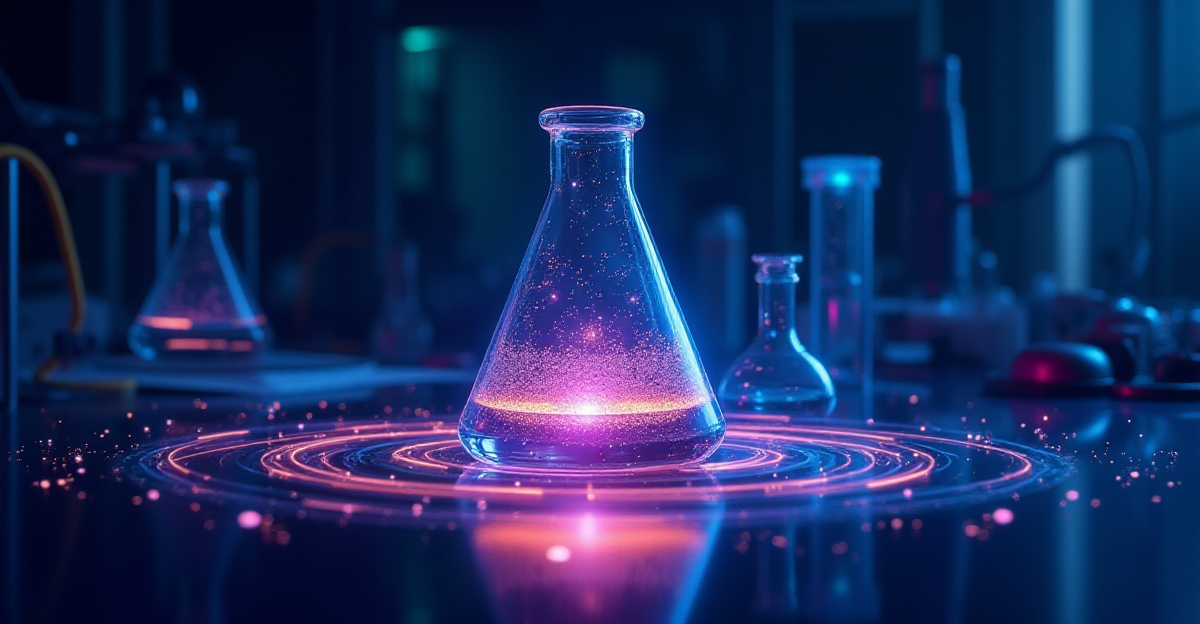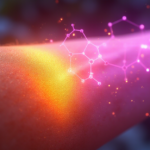By means of my studies in magnetochemistry, I have found intriguing means of magnetic field effect and control for chemical reactions. A potent new method to precisely control chemical reactions with hitherto unheard-of accuracy is provided by the developing discipline of magnetic chemistry My lab studies have revealed how magnetic fields might change reaction paths, regulate spin states, and even induce particular transformations. New methods of medicine synthesis and materials processing are made possible by recent advances in magnetic chemistry. The paper investigates how molecular interactions between magnetic fields and chemical systems produce fresh opportunities for regulated chemical reactions. By use of magnetic impacts on chemical processes, we are creating fresh approaches to improve reaction efficiency and selectivity. Knowledge of magnetic chemistry opens new directions in green chemistry and chemical engineering. Applications of magnetic fields to chemistry are transforming our methods of chemical synthesis and processing.
Table of Contents
- Understanding Magnetic Effects on Chemical Reactions
- Spin Chemistry: Controlling Molecular Behavior
- Magnetic Catalysis and Reaction Control
- Applications in Drug Synthesis
- Revolutionizing Chemistry: How Magnetochemistry and Magnetic Fields Drive Green Practices
- Future Directions in Magnetochemistry
- Extra’s:
Understanding Magnetic Effects on Chemical Reactions
In the field of chemistry, have you ever considered that the same force guiding a compass point north could also be a quite useful tool? Investigating magnetochemistry is fast altering our perspective on the effect of magnetic fields on chemical reactions. These disciplines can speed up reactions, alter the produced items, and even bring to reality heretofore unthinkable events based on science fiction. I started considering the possibilities of such a sector after hearing a tale of a scientist who unintentionally found a magnetic catalysis effect, which drastically enhanced a synthesis procedure. The idea that we may attain a degree of reaction control not attainable with conventional techniques by using this magnetic field is very astonishing. Imagine, for instance, the prospect of producing intricate pharmacological molecules far more precisely and with far more efficiency. Along with lowering trash, this capability would help to lower energy use. Suppose we could precisely manage spin chemistry at a molecular level to reach hitherto unheard-of control over chemical processes. Pretty amazing is the possibility of using magnetic effects on reaction paths to produce more sustainable and efficient chemical engineering methods, exactly complementing the aims of green chemistry.
Magnetic fields have significantly more complex influence than the ordinary magnets we come across daily. Imagine yourself as being able to precisely control the exact molecular behavior throughout a reaction, therefore facilitating considerably faster chemical processes. From quantum mechanics, this spin states manipulation makes such accuracy in reaction control possible that it was unthinkable a few years ago. The possibility to employ magnetic fields to raise the effectiveness of some organic chemical reactions is among the most fascinating developments in magnetochemistry. This results in significant developments in fields including pharmaceuticals and the synthesis of other sophisticated advanced materials; these are accomplished while also lowering the energy consumption. If we could change molecular behavior using magnetic fields and create chemical processes generating less waste and less dangerous byproducts, then what? This not only fits the goals of sustainable chemistry but also creates the avenue for a fresh set of technologies. We are only beginning to explore all the opportunities; the utilization of magnetic effects has helped us to reach cleaner manufacturing methods and unique materials never seen before. Investigating this field will, in my opinion, result in even more fascinating revelations and inspire questions regarding the relationships between magnetism and chemistry.
Spin Chemistry: Controlling Molecular Behavior
Using magnetic fields to precisely manage chemical reactions with a parallel to the way a conductor leads an orchestra is explored in the developing discipline of spin chemistry. This method presents amazing possibility for comprehending and controlling molecular behavior. Like a little internal compass, spin in molecules is a quantum mechanical attribute related to the magnetic moment of the molecule. Scientists can very precisely reaction control over chemical processes by carefully adjusting the spin states of molecules using external magnetic fields, therefore steering reactions down designated reaction paths. This approach is very different from conventional chemical techniques depending on high temperatures and demanding conditions. Rather, we are now in a phase whereby we can almost like a choreographer guiding dancers, guiding molecular behavior with great accuracy. This fine degree of molecular control, a fundamental component of magnetochemistry, enables the adjustment of chemical reactions with unmatched precision, so enabling the synthesis of new substances and compounds. Think of a key (spin) that opens a given lock (reaction), therefore enabling us to control the outcomes of chemical processes. This degree of magnetic catalysis presents considerable possibility and the ability to revolutionize several facets of chemical engineering.
Thanks to spin chemistry, sustainable chemical processes may eventually become the standard. More effective treatments producing less waste and energy consumption can be produced by using magnetic effects to change reaction paths. Using magnetic fields as catalysts is another area of research for scientists since it accelerates particular chemical reactions while lowering the generation of undesired side effects. This degree of molecular control not only supports the ideas of green chemistry but also accelerates the identification of new materials with special features. In the field of pharmaceutical development, for instance, spin chemistry could help to produce medications with less adverse effects, therefore opening the path for focused therapies. In chemical engineering, this method promises less wasteful and more effective manufacturing of several materials. This development in spin chemistry is not only a little step but also a major change in how we approach chemistry, providing us the means to influence molecular behavior in ways formerly judged unreachable, thereby affording the opportunity of revolutionizing how we innovate across many sectors.
Magnetic Catalysis and Reaction Control
This is about attaining a degree of molecular control we originally considered to be science fiction, not only about accelerating things. We may change the spin states of molecules by precisely modifying magnetic fields, therefore leading chemical reactions to get exactly what we require. In chemical engineering, for instance, this implies that we may create fewer waste-generating, more environmentally friendly techniques that are simultaneously more efficient. If we could activate very certain reactions using magnetic fields, have you ever thought about how much waste and energy we might save? With this kind of influence, magnetochemistry could help to make chemical processes considerably more ecologically friendly. Reducing hazardous byproducts and greatly cleaning the process, we could see pharmaceutical firms synthesizing life-saving medications utilizing magnetic fields, therefore supporting green chemistry projects. This also helps us to better grasp molecular interactions and opens the path for more research on spin chemistry. How therefore far can we go in creating more exact chemical processes? More sustainable ones?
Applications in Drug Synthesis
Conventional drug synthesis techniques sometimes entail complex procedures that not only take time but also might generate undesired side effects. But developments in magnetic chemistry present a revolutionary approach since they let us precisely control chemical processes at the molecular level. This creative discipline opens new opportunities for the development of more powerful and safer medications by using magnetic fields to influence chemical reactions. Using methods like magnetic catalysis and spin chemistry, we can exactly control how molecules interact and react, therefore producing medications with improved qualities. This means that, like having a super-precise set of tools allowing us to manufacture complicated compounds using less steps and using less waste, we can now guide chemical reactions with astonishing accuracy. Consider the opportunities that exact molecular control presents in creating drugs able to target particular ailments.
Using magnetic fields in drug synthesis not only speeds up the process of development but also provides a route to more environmentally friendly and effective techniques consistent with the ideas of green chemistry. Using magnetic interactions, we can prefer particular reaction paths, hence producing medications with particular properties. This enables us to maybe produce medicines for chronic diseases with less side effects and also design new antibiotics able to overcome resistance mechanisms. Research on employing magnetic nanoparticles to improve the transport of medications to cancer cells, for instance, shows promise in targeted therapy by means of magnetochemistry. Using magnetic catalysis helps one investigate this approach because its possible to minimize the effect on healthy cells and cut the dosage of medication needed. The capacity to have such exact control over molecular control not only reduces waste but also helps to design creative medications before thought impossible to produce.
Revolutionizing Chemistry: How Magnetochemistry and Magnetic Fields Drive Green Practices
Have you ever given any thought on how we may make chemical processes more ecologically benign and efficient? Using magnetic fields in chemical processes is fundamentally changing the discipline of chemistry. Consider it as magnetic control guiding reactions to guarantee we obtain desired goods and minimize waste. These magnetic fields serve as an exact guide in the chemical process enabling us to get the intended result with minimum waste. It’s about entirely reevaluating chemical synthesis to make it genuinely sustainable, not only about adjusting current chemical processes. With less harsh chemicals and lower temperatures, imagine the possibilities if we could speed up processes; that is just what magnetic catalysis lets us accomplish. Regarding green chemistry, this is a major advancement. In chemical engineering, we are entering a new age in which sustainable and efficient methods abound and using magnetic effects is absolutely vital. This is a major change toward a time when environmental consciousness and chemistry will coexist to produce less waste and substitute less dangerous chemicals. For the future of our Earth, this metamorphosis is not only required but also really fascinating.
In chemical processes, how can we attain higher accuracy to lower waste and maximize efficiency? The fix is here. One might find it simply in spin chemistry. Here molecular spin states are controlled by magnetic fields. Controlling these spin states will provide an amazing degree of reaction control, leading chemical processes to generate just the intended goods. Our method of chemical synthesis and processing is fast being changed by magnetochemistry. This exact molecular control cuts energy required for chemical processes and reduces waste. Chemical processes will be quite efficient and have little effect on the surroundings in a world we are headed toward. In this world, I see the full use of magnetic effects to produce a more sustainable future for all. This creativity brings us to a day when sustainability and science will coexist together and effective chemical methods will be environmentally beneficial.
Future Directions in Magnetochemistry
Investigating the impact of magnetic fields on chemical reactions, a field sometimes referred to as magnetochemistry, is opening doors for major changes in our approach to chemistry. From conventional approaches, the capacity to regulate chemical processes by magnetic catalysis presents a radical change. Imagine being able to precisely guide reaction pathways and control molecular behavior to reach hitherto unheard-of control over reactions. This accuracy could help to drastically cut waste, lower energy use, and promote a more environmentally friendly method of creating fresh chemicals and materials. Magnetochemistry could enable us to use magnetic fields to control the structures and reactions of molecules, therefore producing materials with special and customized qualities rather than depending on high temperatures or strong chemicals. This field is about profoundly altering our perspective on chemical engineering by using magnetism, not only about little enhancements.
Combining magnetochemistry with green chemistry is producing more environmentally friendly chemical processes. By means of the harnessing of magnetic effects, we may greatly improve reaction efficiency and lower our reliance on detrimental chemicals and energy-intensive circumstances. Spin chemistry explores how the spin states of molecules influence interactions, therefore augmenting this evidence. For instance, the spin states of reactants help us to identify the reaction paths, thereby enabling us to regulate the result of the reaction using magnetic fields. Furthermore, the exact control made possible by magnetochemistry creates opportunities for developments like focused medication distribution. Imagine little magnetic nanoparticles delivering drugs straight to cancer cells, therefore reducing side effects and enhancing treatment effectiveness. Many spheres of medical and material science can be transformed by this degree of control. The continuous advancement in this area promises to solve practical issues and bring about a time when chemical procedures will be more exact, sustainable, and efficient. To completely achieve the great promise of magnetochemistry, we must support more study and development in this field.
Extra’s:
“If you’re intrigued by the concept of manipulating chemical reactions, you might also find the advancements in “Synthetic Food Chemistry: The Future of Lab-Grown Cuisine” equally fascinating. The ability to control reactions at a molecular level not only opens new possibilities in material science but also revolutionizes our approach to food production. Furthermore, understanding the origins of chemical processes as it relates to life can give another insight; exploring the development of life’s fundamental components through “Evolutionary Chemistry: How Chemical Evolution Shaped Life’s Building Blocks” will help contextualize the power of chemistry.”
“For those interested in delving deeper into the science behind magnetic chemistry, resources like “Magnetic field effects in chemical systems” offer a comprehensive look at the phenomenon. It provides valuable information that can help in understanding how magnetic fields influence reactions, offering a deeper understanding of the topic. Furthermore, to understand the influence of the magnetic field on electron behavior, researching “Electron Spin State – an overview | ScienceDirect Topics” will give important insight into the fundamental science of magnetic chemistry.”












It’s fascinating to learn how magnetic fields can be utilized to control chemical reactions with such precision! This post sheds light on the promising field of magnetic chemistry.
I wonder how these advancements in magnetic chemistry could potentially revolutionize drug synthesis and industrial processes. The potential seems immense!
The concept of using magnetic fields to alter reaction paths and induce transformations is truly groundbreaking. I’m excited to see where this research leads in the future.
As a chemistry enthusiast, I find the intersection of magnetic fields and chemical reactions incredibly intriguing. The possibilities for innovation in this field are truly exciting!
Have you encountered any notable challenges or surprises in your experiments with magnetic chemistry so far? Your insights could pave the way for further discoveries in this field.